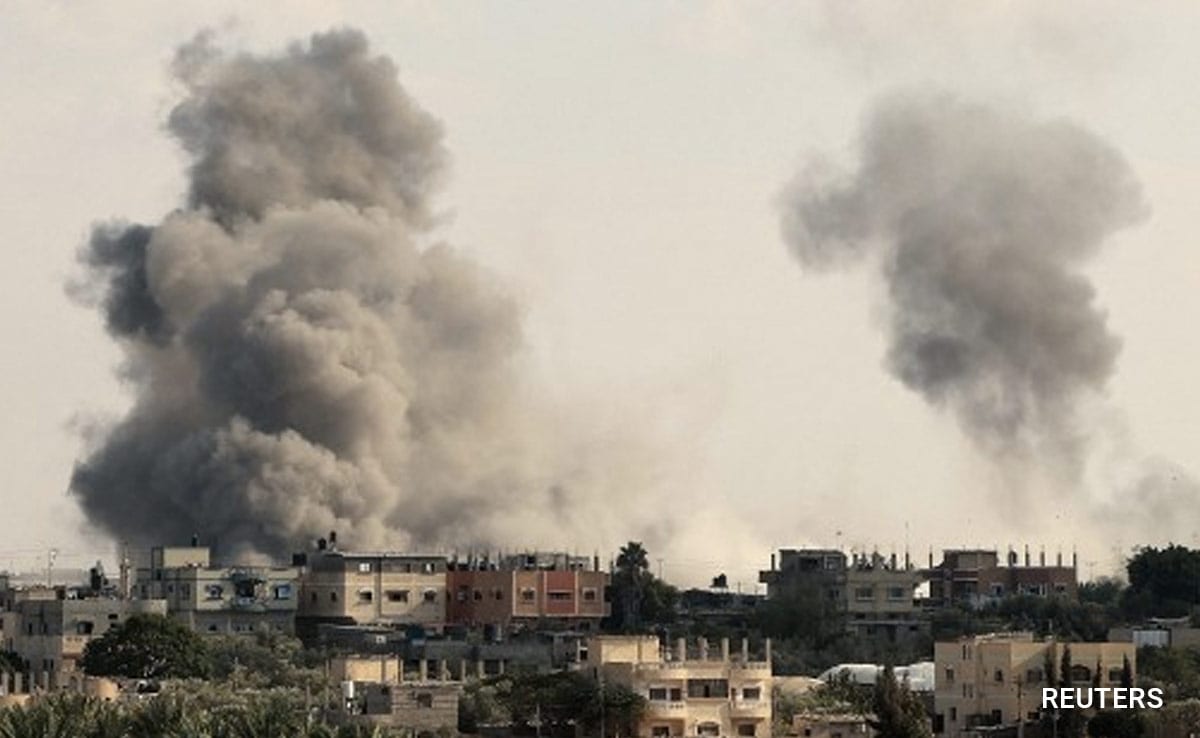2024-02-08 21:25:01

Israel has intensified its attacks on Gaza’s Rafah despite US’ warnings.
The United States warned Israel Thursday that it risks “disaster” if it sends troops into Gaza’s far-southern city of Rafah, where more than one million Palestinians have sought refuge.
The warning came after Israeli Prime Minister Benjamin Netanyahu said he had ordered troops to “prepare to operate” in Rafah, the last major town in the Gaza Strip Israeli ground troops have yet to enter.
Israel’s armed forces stepped up its air strikes on the city on Thursday as fears of ground fighting grew among the hundreds of thousands of civilians displaced from other parts of Gaza who are now sheltering in tents and bombed out buildings.
UN chief Antonio Guterres warned that a military push into Rafah “would exponentially increase what is already a humanitarian nightmare”.
Heavy fighting raged on despite international efforts towards a ceasefire in the bloodiest ever Gaza war sparked by Hamas’s October 7 attack on southern Israel.
State Department deputy spokesman Vedant Patel said Washington had “yet to see any evidence of serious planning” for a Rafah ground operation.
Noting that Rafah is also a crucial entry point for humanitarian aid destined for Gaza, Patel said such an assault was “not something we’d support”.
“To conduct such an operation right now with no planning and little thought… would be a disaster.”
Secretary of State Antony Blinken conveyed Washington’s concerns to Netanyahu directly during their talks on Wednesday in Jerusalem, Patel said.
Publicly, the US top diplomat warned that any “military operation that Israel undertakes needs to put civilians first and foremost.”
Blinken left Israel without securing a pause in fighting, wrapping up his fifth crisis tour of the Middle East since the war started.
AFP journalists reported that Israel carried out at least seven air strikes overnight in the Rafah area, terrifying civilians crowded into shelters and makeshift camps.
“These strikes are proof there is no safety in Rafah,” said resident Umm Hassan, 48, whose home was damaged in the shelling of the nearby house of a local police chief.
“Look at the residential unit they just blew up,” he said. “Regarding Netanyahu’s threat to invade Rafah, we are people of faith. We are not worried. Life is one and God is one.”
Strikes and ground combat continued across the Hamas-ruled territory, now in its fifth month of war, where the health ministry said another 130 people were killed in 24 hours.
– Cairo truce talks –
Blinken ended his fifth tour of the region, where US forces have been drawn into related conflicts from Iraq to Yemen.
On the ceasefire talks, Blinken insisted he still saw “space for agreement to be reached” to halt the fighting and bring home hostages.
Egypt was set to host new talks with Qatari and Hamas negotiators hoping to achieve “calm” in Gaza and a prisoner-hostage exchange, an Egyptian official said.
The Israeli prime minister had rejected what he labelled Hamas’s “bizarre demands” in the talks.
Blinken told reporters that Hamas’s counter-proposal had at least offered an opportunity “to pursue negotiations”.
“While there are some clear non-starters in Hamas’s response, we do think it creates space for agreement to be reached, and we will work at that relentlessly until we get there,” he said.
Hamas said a delegation led by Khalil al-Hayya, a leading member of the group’s political bureau, was travelling to Cairo.
A Gaza-based Palestinian official close to the Hamas group later told AFP: “We expect the negotiations to be very complex and difficult.
“But Hamas is open to discussions and the movement is keen to reach a ceasefire,” added the official, speaking on condition of anonymity.
– ‘War crime’ charge –
Hamas’s unprecedented attack on Israel on October 7 resulted in the deaths of about 1,160 people, mostly civilians, according to an AFP tally based on official Israeli figures.
Israel vowed to eliminate Hamas and launched air strikes and a ground offensive that have killed at least 27,840 people, mostly women and children, according to the Gaza health ministry.
Hamas also seized around 250 hostages. Israel says 132 remain in Gaza, of whom 29 are believed to have died.
Months of bombardment and siege have deepened a humanitarian crisis, especially in southern Gaza.
“Their living conditions are abysmal,” UN humanitarian chief Martin Griffiths said. “They lack the basic necessities to survive, stalked by hunger, disease and death.”
UN rights chief Volker Turk charged that Israel was committing a “war crime” with its reported destruction of buildings to create a “buffer zone” along the border inside Gaza.
Israel’s “extensive destruction of property, not justified by military necessity and carried out unlawfully and wantonly, amounts to a grave breach of the Fourth Geneva Convention, and a war crime”, he said in a statement.
The Gaza war has sparked a surge in violence across the region by Iran-backed groups operating in solidarity with Hamas, drawing retaliatory attacks from Israel and the United States and its allies.
A US air strike in Iraq on Wednesday killed a senior commander from a pro-Iran armed group who US Central Command said was “responsible for directly planning and participating in attacks on US forces”.
The strike came after Washington last week launched a wave of attacks on Iran-linked targets in Iraq and Syria following the killing of three US troops in neighbouring Jordan.
The Israeli military confirmed it had targeted a commander of Iran-backed militant group Hezbollah that it held responsible for recent rocket fire into Israel from south Lebanon.
In other diplomatic attempts to end the war, Jordan’s King Abdullah II left on a tour of the United States, Canada, France and Germany, the royal court said.
Israel Hamas War,United States,Rafah,Israel ground operation in Rafah
Source link
3 total views , 1 views today
